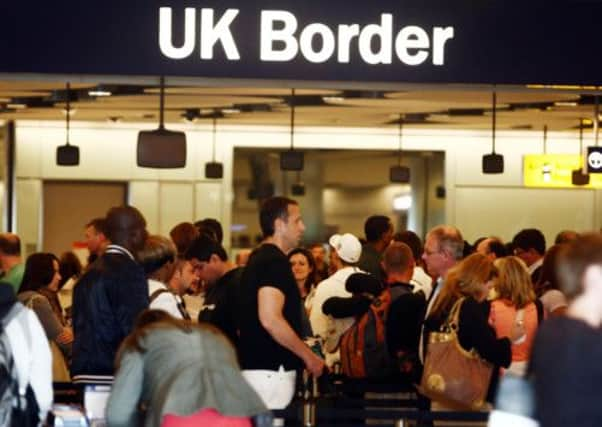Jane Bradley: Rant at Romanians beggars belief


I had a good job in a state high school, where I taught English to intelligent, mainly middle-class children. I was paid the standard government wage for an inexperienced teacher at the time – the equivalent of £40 a month. This was the same salary many of my colleagues received, yet as the foreign teacher, I also got the added perk of free accommodation and my utility bills paid. Young Romanian teachers on the same wage remained living with their parents to be able to eat.
Despite my financial advantages, not once did I ever get the hint that I should go home. Stop stealing their jobs. Leave their free national health service alone. Instead, I was welcomed with open arms.
Advertisement
Hide AdAdvertisement
Hide AdPeople realised that it was tricky to get by on a junior teacher’s salary, so they helped me out, despite their personal circumstances being far less than those of the average Brit.
Through colleagues, I was offered extra work as an exam invigilator, I was paid to fill in for other foreign lecturers at the university. Romanian friends invited me for dinner at their homes and sent me back to my flat with bags full of homemade jams, pickles and stews.
Ten years on, I am watching as young Romanian teachers – and dentists and doctors and shop workers – are finally given the same rights to work here as I have to take up employment in their country.
When I lived there, Romania was not a member of the European Union, so I needed a work visa. However, since the country’s accession to the EU in 2007, I – and any other European citizen – have the right to turn up and apply for a job there. But for the past six years, Romanians have not enjoyed the same freedom here. Sadly, those who are considering a move to the UK when the labour market restrictions are finally lifted in January will be packing their bags with trepidation.
The vitriol directed against them has been abhorrent. One tabloid newspaper in particular has launched a distasteful campaign against the “new” migrant workers, calling for the UK government to close its borders to Romanians and their Bulgarian neighbours. It has illustrated its rants with pictures of Roma – the ethnic minority group formerly known as gypsies – begging on the streets of Britain. Their message? Romanians and Bulgarians are all beggars – keep them out!
Two fallacies exist here. First, while some Roma are Romania-born, many are not. Roma communities exist across eastern Europe in countries such as the Czech Republic, Hungary, or Slovakia – all nations which currently enjoy full working rights in the UK.
Second, under current laws anyone who wants to can travel, unrestricted, from Romania or Bulgaria to Britain. They just can’t legally work here yet without meeting certain criteria.
Therefore, any Romanian or Bulgarian (Roma or not) who wants to make a living by begging on British streets is here already. Offering them the chance to become an employee, to pay UK taxes and National Insurance, is unlikely to spark a flood of new begging talent.
Advertisement
Hide AdAdvertisement
Hide AdMeanwhile, for the Romanians and Bulgarians who want to make an honest living, the lifting of the restrictions will open up a whole new world. A world that we, as lucky holders of British passports, have happily enjoyed for years.
If they, like their French, Italian or Spanish equivalents, fancy a change and want to spend some time in Britain then they will need to apply for jobs in order to earn a living.
They will have the same chance of getting those jobs as my other European friends living in Scotland: Italian Michelle, who worked as an estate agent, Daniela from Germany, who is a social worker. There has not been a backlash against them.
So spare a thought for Romanian teacher Ionela, who just wants the right to spend some time, as I did, working in a foreign land. Or for Bulgarian political scientist Georgy, who would love to immerse himself in the workings of Holyrood to expand his already broad knowledge of European government.
Meanwhile, that European free labour market is open to you too. Start browsing the jobs boards in preparation for an adventure in Bucharest or Sofia.
You might never come back.